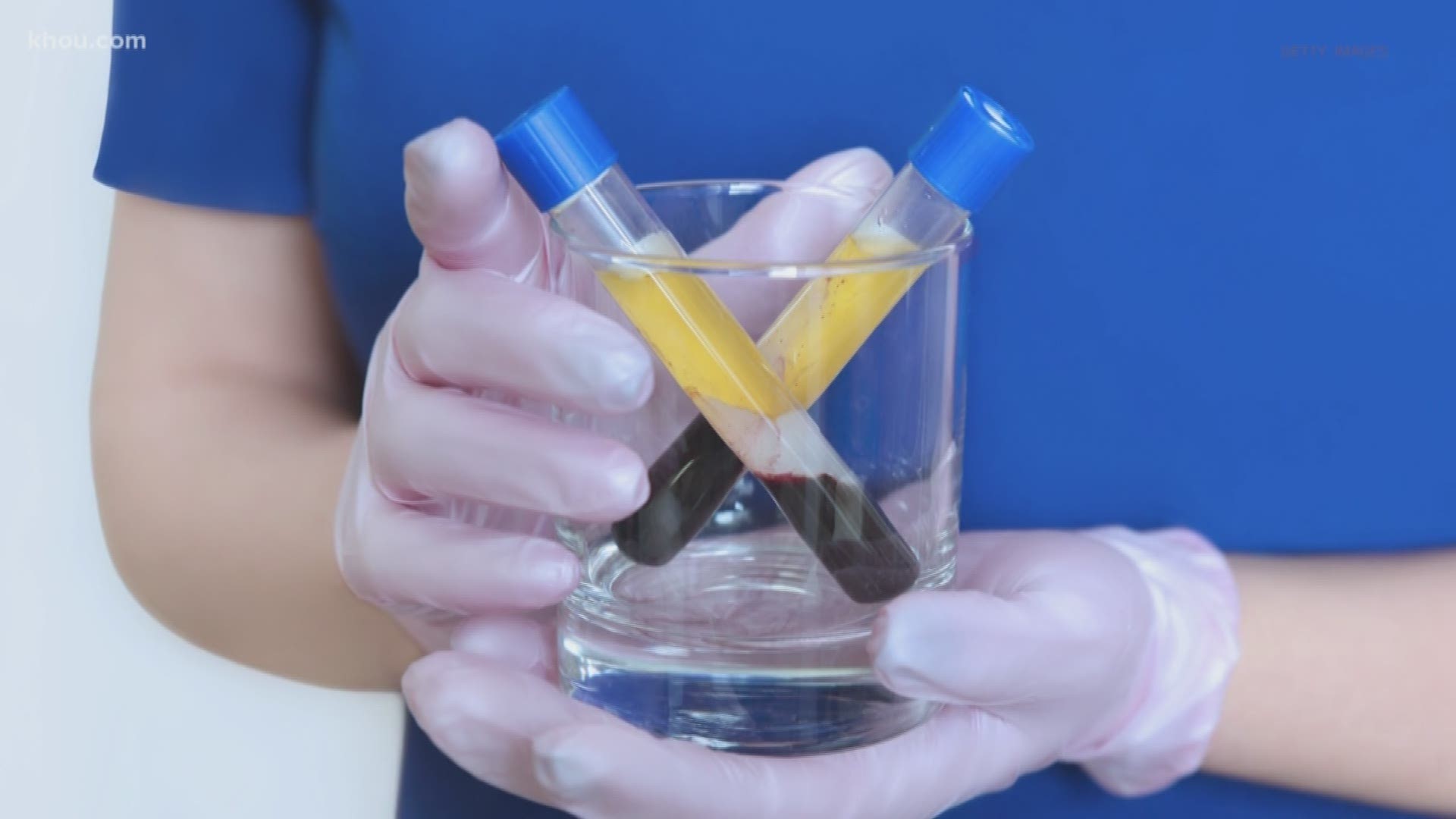HOUSTON — *Editor's Note: The above video are the top coronavirus headlines for Monday, April 6, 2020.*
Doctors are looking for patients who have recovered from the coronavirus to donate plasma which could help others who are critically ill.
Houston Methodist is one of several hospitals around the country participating in a clinical trial.
They say ten critically ill patients in Houston have received convalescent plasma and are now being monitored.
According to the American Red Cross, this is the criteria for those who want to donate plasma.
- You must have a documented positive COVID-19 molecular test.
- Donors must be at least 17 and weigh at least 110 pounds.
- You have to be in good health and feeling well.
- Donors must be symptom-free for at least 14 days.
If you meet those requirements, you can contact the American Red Cross or Methodist Hospital if you would like to participate.
Potential donors can request to give plasma to the American Red Cross online through this link.
Potential donors can call Methodist Hospital at 346-238-4360.
"Ten fully recovered COVID-19 patients who were tested and treated at Houston Methodist hospitals have since donated their plasma for fellow patients, and more donations are scheduled for next week," the hospital said in a statement. "Physician scientists at Houston Methodist cautioned that the convalescent serum therapy – more than a century old and used in previous infectious outbreaks around the globe – remains experimental, and it could be some time before its effectiveness in individual patients is known."
Coronavirus symptoms
The symptoms of coronavirus can be similar to the flu or a bad cold. Symptoms include a fever, cough and shortness of breath, according to the Centers for Disease Control. Some patients also have nausea, body aches, headaches and stomach issues. Losing your sense of taste and/or smell can also be an early warning sign.
Most healthy people will have mild symptoms. A study of more than 72,000 patients by the Centers for Disease Control in China showed 80 percent of the cases there were mild.
But infections can cause pneumonia, severe acute respiratory syndrome, kidney failure and even death, according to the World Health Organization. Older people with underlying health conditions are most at risk for becoming seriously ill. However, U.S. experts are seeing a significant number of younger people being hospitalized, including some in ICU.
The CDC believes symptoms may appear anywhere from two to 14 days after being exposed.
Human coronaviruses are usually spread through...
- The air by coughing or sneezing
- Close personal contact, such as touching or shaking hands
- Touching an object or surface with the virus on it, then touching your mouth, nose or eyes before washing your hands.
Help stop the spread of coronavirus
- Stay home when you are sick.
- Eat and sleep separately from your family members
- Use different utensils and dishes
- Cover your cough or sneeze with your arm, not your hand.
- If you use a tissue, throw it in the trash.
- Follow social distancing
Lower your risk
- Wash your hands often with soap and water for at least 20 seconds. If soap and water are not available, use an alcohol-based hand sanitizer.
- Avoid touching your eyes, nose, and mouth with unwashed hands.
- Avoid close contact with people who are sick.
- Clean and disinfect frequently touched objects and surfaces.
- If you are 60 or over and have an underlying health condition such as cardiovascular disease, diabetes or respiratory illnesses like asthma or COPD, the World Health Organization advises you to try to avoid crowds or places where you might interact with people who are sick.
Get complete coverage of the coronavirus by texting 'FACTS' to 713-526-1111.

